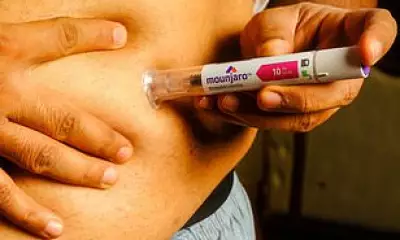
The tragic death of a 17-year-old student, who took her own life just hours after reading her confidential mental health records, has sparked urgent calls for reform in how sensitive medical information is shared with young people.
A Promising Future Cut Short
Maya Cassady, from Vancouver, had been accepted into her dream university in the Netherlands to study European law and was just two months from graduating high school when she filed a freedom of information request for her medical records in March 2023.
Her future was immediately destroyed when those records arrived. Her heartbroken mother, Hilary Cassady, described the documents as 'the ultimate trigger that led to her death.'
The Vancouver teen had previously spent four days at Lions Gate Hospital the month before requesting her records. During this stay, doctors treated her for an acetaminophen overdose which they concluded was a suicide attempt.
The Devastating Diagnosis
Medical professionals had documented Maya's condition as 'chronic dysthymia vs unspecified depressive disorder' and classified her as 'not acutely suicidal' during her hospitalisation.
According to her mother, Maya began frantically researching her diagnoses online immediately after receiving the records. Friends witnessed her pouring over the documents during her school commute and free periods.
Her search history revealed troubling queries including 'Is persistent depressive disorder lifelong?' and searches about bipolar II disorder, which had been mentioned in her chart.
The final search on her phone concluded that her symptoms were 'untreatable.'
'She had given up hope when she felt that her diagnosis was untreatable — that was the response when she Google searched some of the terminology in the report,' Ms Cassady told CTV News.
A System in Need of Reform
In most of British Columbia where Maya received treatment, patients can request their medical records without parental consent from age 12.
While protections exist to shield minors from information that could cause 'immediate and grave harm' to their mental health, the volume of requests means not all can be thoroughly screened.
Ms Cassady, who had attended all her daughter's psychiatric appointments and even recorded sessions to ensure she didn't miss details, stated she was unaware doctors had considered a bipolar disorder diagnosis.
Since her daughter's death, she has established the Maya Veronica Cassady Mental Health Wellness Fund, which provides financial assistance to one student annually working to improve their mental health.
She has also proposed that any teenager granted access to their medical records should meet with a healthcare professional to properly understand the terminology, prognosis and treatment options.
'Teens want control over their treatment and want to understand what is happening to them,' she explained, emphasising the need for proper guidance.
Maya is remembered by loved ones as 'witty, spicy, fun, bright, caring and beautiful.'
'She was my "mini-me" and I miss her so much,' her mother said.






